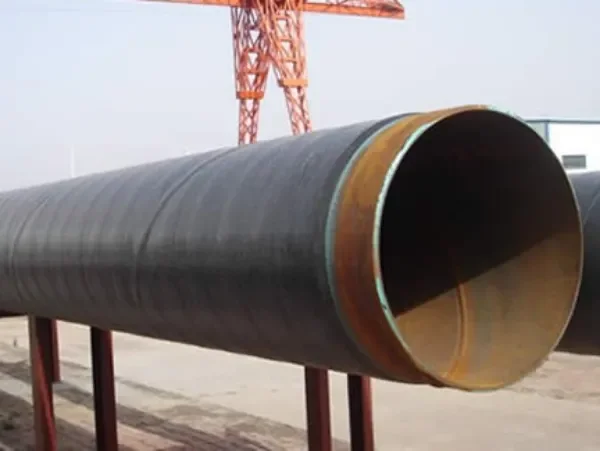Hydrostatic pressure test for spiral steel tubes
How to implement the hydrostatic pressure test of spiral steel pipe?
When the spiral steel pipe reaches the hydraulic press in the production line, the staff places the sealing rubber rings on both ends of the spiral steel pipe. The sealing rubber rings must be arranged neatly at both ends of the spiral steel pipe to prevent air leakage during hydrostatic testing. The water is then transferred to a hydraulic press. The hydraulic press fills the inside of the spiral steel pipe. When the inside of the spiral steel pipe is filled with water, it can be pressurized. Add it to pressure under standard check and then maintain pressure. The holding time of a spiral steel pipe less than 508mm shall not be less than 5 seconds; The holding time of a spiral steel pipe with a diameter greater than or equal to 508mm shall not be less than 10 seconds.
The hydrostatic pressure test of spiral steel pipe is mainly to test that the weld or tube body of spiral steel pipe does not crack or leak under the specified horizontal pressure, and the residual stress in the load itself will produce certain elastic-plastic deformation, thus affecting the spiral. External dimensions, mechanical properties, and residual stress distribution of steel tubes.
The manufacturer of spiral steel pipe should print out a water pressure record sheet when conducting hydrostatic pressure tests on spiral steel pipe. According to customer requirements, customers can copy, spiral pipe manufacturers do not need to organize file storage, so it can be tracked.

Cangzhou Shenlong Pipe Manufacturing Co., Ltd. is a high-tech enterprise specializing in the manufacture and sales of straight-seam welded pipe and spiral steel pipe. The main products of the company are oil and gas bushing, tubing, pipeline pipe, pile pipe, structural pipe, etc., with an annual design capacity of 100,000 tons. The company's products execute API SPEC 5CT, API SPEC 5L, FM 1630, UL 852, JIS G3444, JIS G3452, ASTM A53/A53M, AS/NZS 1163, AS/NZS 1074, AS/NZS 1396, EN10217, EN10219, EN10255, and GB/T9711, GB/T3091, and other domestic and foreign standards. Products are exported to overseas markets and widely used in petroleum, natural gas, solar energy, shipbuilding, automobile, chemical, environmental protection, boiler, fire protection, water conservancy, electrical industry, machinery and equipment, steel structure, construction, and other industries.






